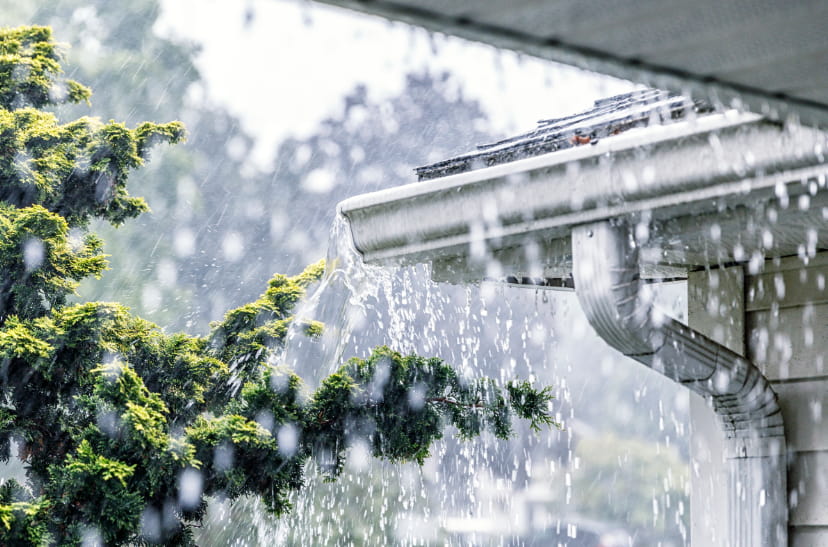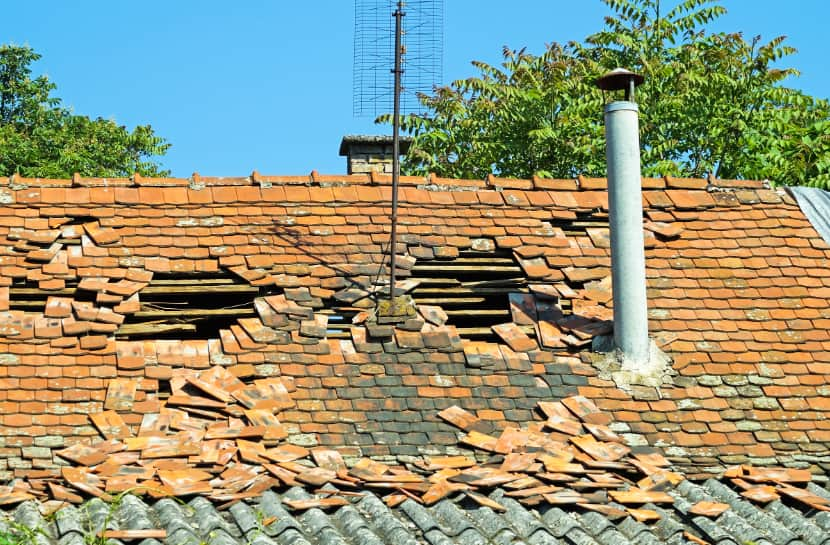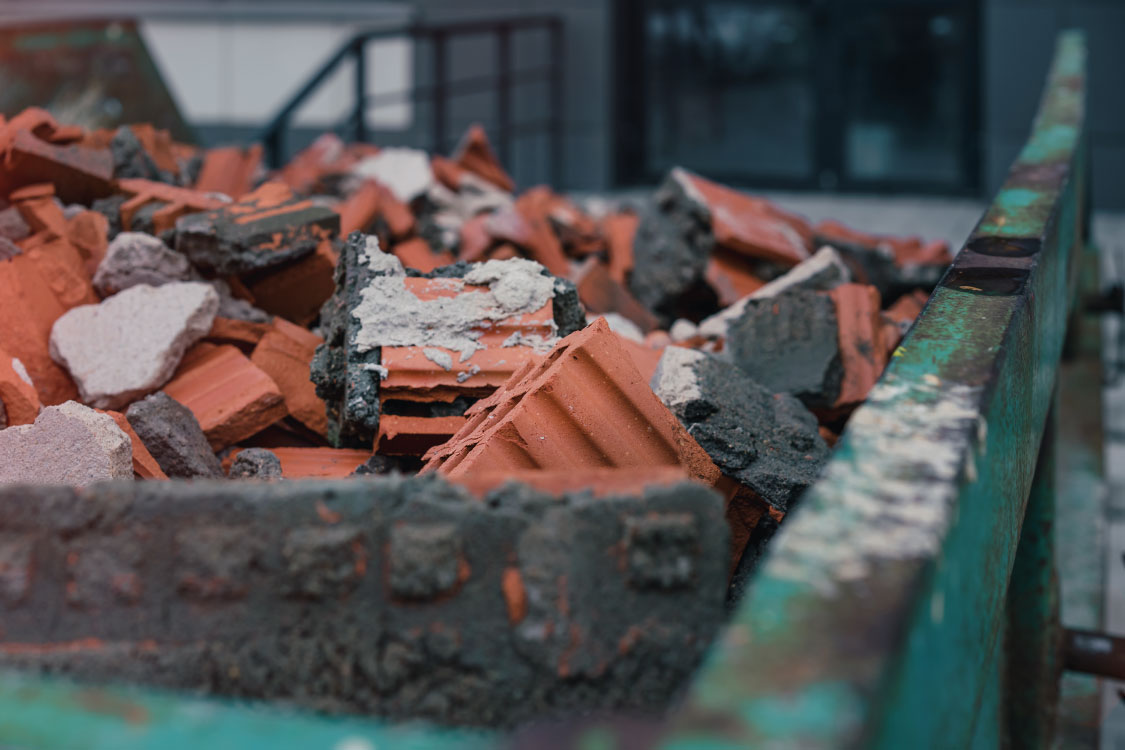How To Prepare For Storm Season

Have you ever taken notice of ants before an oncoming storm or rain? There may not be a cloud on the horizon, but the frenetic activity of the ants is a sign that rough weather is coming your way. You can put this heightened energy to good use and secure your home before a storm begins.
Ideally, you’ll begin to prepare for storms before they arrive, ensuring your home is tidy and easy to secure. Whether it’s hard rubbish, branches and green waste or general rubbish, a mini skip bin provides a safe and quick way to remove debris.
Overview
When is storm season in South Australia?
8 Steps to take to prepare your home for a storm
The post-weather event clean-up
When is storm season in South Australia?
In Nyoongar Country (South Australia) Makuru (JUNE, JULY) is the season of fertility and is the coldest and wettest season of the year with more frequent gales and storms. This was a time when indigenous people would move inland, away from the high winds and rough seas.
90% of South Australians live near the coast, so as the weather becomes more unpredictable, it is important to prepare your homes for increasingly severe weather events.
Being aware of the Nyoongar calendar can help you to plan to prepare for Makuru (storm) season, particularly if you live near the coast, to ensure your home is ready for storms and severe weather events.
8 Steps to take to prepare your home for a storm

Secure & Store
Strong winds can pick up and carry unsecured items a long way causing damage to your property or someone else’s. Don’t forget about your trampoline which can act like a giant sail in high winds. We’ve all heard of trampolines clearing 8ft fences in high winds and ending up in neighbouring backyards. Get a trampoline anchor kit and secure it properly.
Do a general household tidy-up and pick up and put away any items you can. If you can pack outdoor furniture into a shed, do so. Consider parking your car up a rise away from low-lying areas to avoid finding it underwater!
Clear Gutters & Downpipes
Clear the gutters ahead of storm seasons; blockages can result in water overflowing from your gutters and rising around your house where previously undetected leaks can occur without proper drainage. Ensure rainwater is making it down drainpipes and directed away from your home into stormwater to avoid flooding.
Trim trees & overhanging branches
Check your local council for rules around trimming trees. An arborist can check to identify any weak spots in the trees around your property, including overhanging branches or even root damage which is a major cause of tree falls. Trim and clear where you can and remove green waste from your property ahead of a storm.
Check your roof before a storm
Make sure your roof sheets or tiles are all secure. A flying roof sheet is common and can cause a lot of damage. If you have been meaning to get the roof repaired now is the time to do it. Have your roof inspected by a tradie every 5-7 years.
Check/update your insurance
Make sure that your home insurance policy provides cover for the types of events specific to your location, these may include flash floods, stormwater runoff, associated landslip (or landslides) and damage to properties by trees. Don’t take this for granted, many insurance policies exclude flood damage, for example, and it must be an added extra. Double-check to avoid being caught out!
Make a home emergency plan & kit
Keep your family in the loop ahead of a storm and make a plan together. Think about the sorts of things you’d need in an emergency. It can be difficult to find these items in a power out or if you need to leave home in a hurry. Create an emergency kit containing items in a sturdy, waterproof container and keep it in an easily accessible place.
Tune in to your local radio station
Your local radio station will broadcast information specific to your area. This information can help you identify things such as flash flooding locations to avoid, road closures, evacuation and recovery centres.
Power often goes out during storms and water can affect electricity outlets within your house so make sure you have battery-operated torches and a radio with spare batteries. It may be your only way to get news and updates during a storm.
In the event of an emergency
Know the number for SA SES 132500 and call in the event of flood and storm emergencies. If there is a threat to your immediate safety call 000.
The post-weather event clean-up
A post-storm clean-up can be an almighty job, a tree may have fallen or the whole shed has collapsed – we’re here to help – we have a range of skips for various materials from green waste to household and brick/concrete waste and more.
Preparation is key as extreme weather events increase
From preparing for bushfire season to navigating flooding, knowing that your property is ready for extreme weather can give you peace of mind.
Whether you’re preparing your property or cleaning up after extreme weather, get in touch and we can get the right skip to you. We deliver skips to most areas around Adelaide saving you transport hassles when you already have enough to do.
Frequently Asked Questions
How do you keep safe from heavy rain?
Be prepared should there be an emergency like a flood. Tune in to your local radio station and listen for updates. Stock an emergency kit with non-perishable items like food, water, flashlights, batteries and medicines. Practice an evacuation plan and immediately evacuate if told to do so. Prepare for power outages by charging cell phones and laptops.
What is the best thing to do when there is a thunderstorm warning?
The best defence against thunderstorms is to stay inside a sturdy building or shelter that can protect you from lightning, hail, damaging winds, and flooding rain.
Fortunately, thunderstorms typically do not last very long and will most often pass by your location in less than one hour.
What is the Department of Emergency Services in South Australia?
The SASES is the control agency for the state’s emergency service response for extreme weather, including heatwaves and extreme storms, floods & search and rescue.
For SASES emergency assistance call, 132 500.



